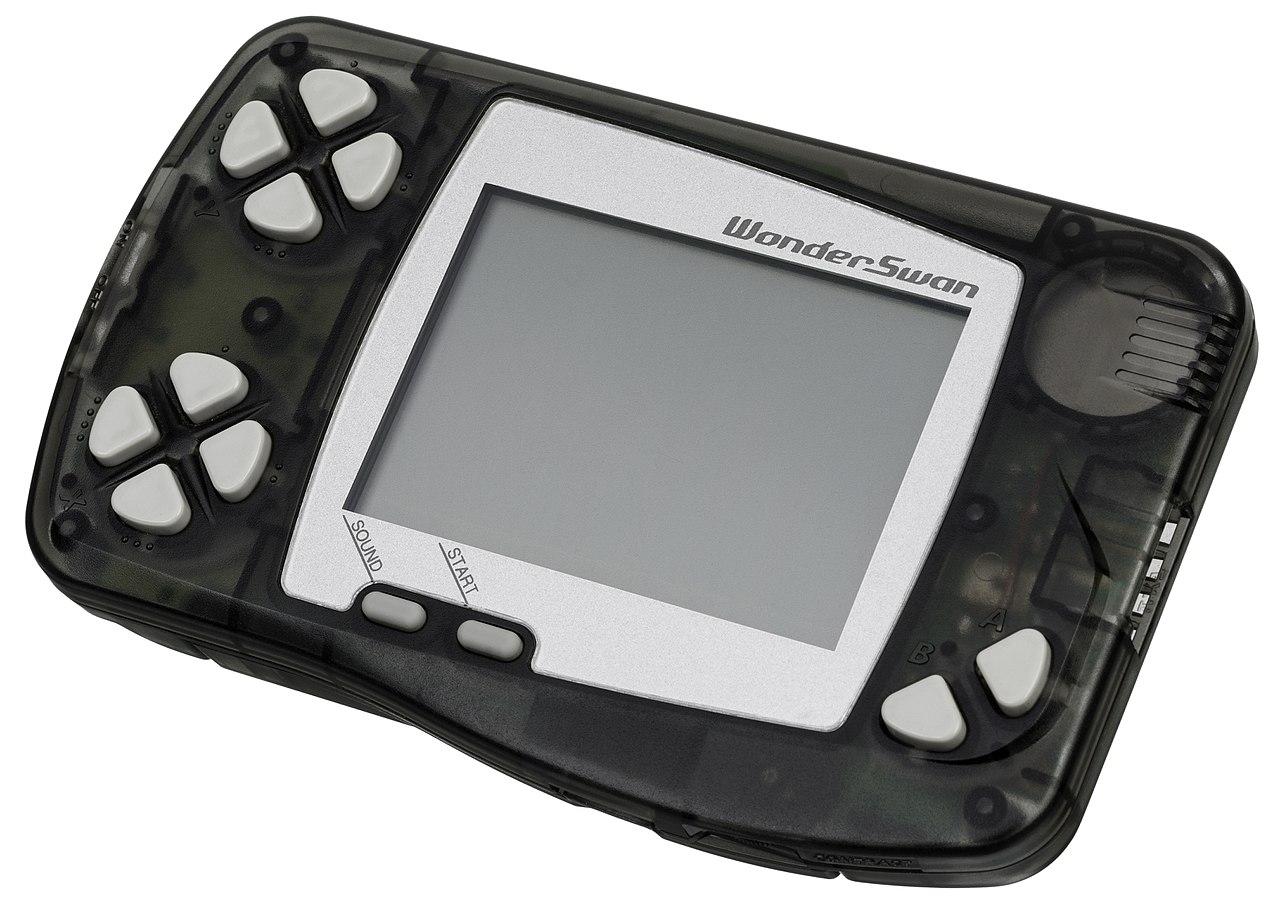-
1999 March 04
Hardware Description
The WonderSwan is a handheld game console released in Japan by Bandai. It was developed by Gunpei Yokoi's company Koto Laboratory and Bandai, and was the last piece of hardware Yokoi developed before his death in 1997. Released in 1999 in the fifth generation of video game consoles, the WonderSwan and its two later models, the WonderSwan Color and SwanCrystal were officially supported until being discontinued by Bandai in 2003. During its lifespan, no variation of the WonderSwan was released outside of Japan.
Powered by a 16-bit central processing unit, the WonderSwan took advantage of a low price point and long battery life in comparison to its competition, Nintendo's Game Boy Color and SNK's Neo Geo Pocket Color. Later improvements took advantage of quality upgrades to the handheld's screen and added color. The WonderSwan is playable both vertically and horizontally, and features a unique library of games, including numerous first-party titles based on licensed anime properties, as well as significant third-party support from developers such as Squaresoft, Namco, Capcom and Banpresto.
The WonderSwan launched on March 4, 1999 and was available in nine casing colors: pearl white, skeleton green, silver metallic, skeleton red, blue metallic, skeleton blue, skeleton black, camouflage, and gold. Three limited edition two-tone models were also released in frozen mint, sherbet melon and soda blue. These colors were chosen through an online poll at Bandai’s website, with the metallic and pearl white models being discontinued on July 22 to make room for the special two-tone editions. With a retail price ¥4,800, the WonderSwan was cheaper than its competition.
Overall, the WonderSwan in all its variations combined to sell an estimated 3.5 million units and managed to obtain as much as 8% of the Japanese handheld video game console market before being marginalized by Nintendo's Game Boy Advance. Retrospective feedback praises the potential of the WonderSwan despite its low sales and its brief time holding its own against Nintendo in the marketplace.
-
Manufacturer:
-
Hardware Type:
Video Game -
Manufacture Year:
1999 March 04 -
More Info:
-
We recognize our sponsors starting at $1 per entry.
Learn more at https://www.ithistory.org/benefits
Date discontinued:
2003

